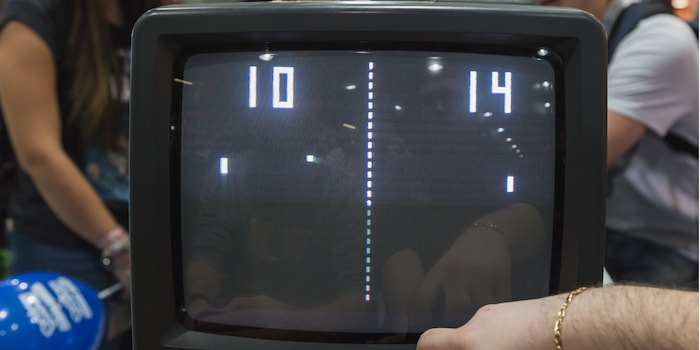
Intelligence: Neurons in the Petri dish learn to play "Pong"
A cell culture that can operate a computer game? It really is possible: In an experiment, researchers were able to teach neurons to play the video game "Pong".
A team led by Karl Friston of University College London has taught brain cells in a petri dish to play the video game "Pong". In this game, vertical bars on the screen have to be steered up and down to intercept a ball bouncing back and forth. In the experiment, the nerve cells controlled the bars.
The scientists had first grown neurons from stem cells of humans or mice. They cultivated these on microelectrodes that were connected to the game "Pong". With the help of the electrodes, the experts were able to stimulate the cell association at different points. To teach the neurons to hit the ball, they made use of the theory of free energy: Neurons respond in a way that creates a predictable environment for them. This lowers the energy expenditure and increases the chance of survival. Thus, it should be possible to influence their behaviour by giving unpredictable feedback after "wrong" reactions. The scientists proceeded as follows: Electrical stimuli indicated the position and path of the ball on the chip, their frequency the proximity to the bat. If the neurons "hit" the virtual ball, i.e. reacted with an activity that reflected the input signals, the experts stimulated them again in the same place and with the same frequency. If they did not "hit" it, the team stimulated the network at random regions and with different frequencies. In addition, the game restarted and the ball began its journey at an unpredictable position. Within minutes, the neurons learned the game principle. The work is evidence that neurons in a dish can learn and show basic signs of intelligence, said Brett Kagan, lead author of the study.
Spectrum of Science
. We are partners with Spektrum der Wissenschaft and want to make sound information more accessible to you. Follow Spektrum der Wissenschaft if you like the articles .
Originalartikel auf Spektrum.de
Titelbild: Shutterstock, Tinxi
Experts from science and research report on the latest findings in their fields – competent, authentic and comprehensible.
From the latest iPhone to the return of 80s fashion. The editorial team will help you make sense of it all.
Show all